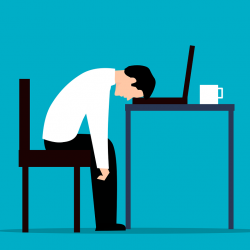To provide the best experiences, we use technologies like cookies to store and/or access device information. Consenting to these technologies will allow us to process data such as browsing behaviour or unique IDs on this site. Not consenting or withdrawing consent, may adversely affect certain features and functions.
The technical storage or access is strictly necessary for the legitimate purpose of enabling the use of a specific service explicitly requested by the subscriber or user, or for the sole purpose of carrying out the transmission of a communication over an electronic communications network.
The technical storage or access is necessary for the legitimate purpose of storing preferences that are not requested by the subscriber or user.
The technical storage or access that is used exclusively for statistical purposes.
The technical storage or access that is used exclusively for anonymous statistical purposes. Without a subpoena, voluntary compliance on the part of your Internet Service Provider, or additional records from a third party, information stored or retrieved for this purpose alone cannot usually be used to identify you.
The technical storage or access is required to create user profiles to send advertising, or to track the user on a website or across several websites for similar marketing purposes.
 Two in five employees across the UK have experienced problematic behaviour, such as bullying, harassment or discrimination at work; with 42 percent confirming toxic workplace culture has impacted their mental health, according to recent research from Culture Shift. (more…)
Two in five employees across the UK have experienced problematic behaviour, such as bullying, harassment or discrimination at work; with 42 percent confirming toxic workplace culture has impacted their mental health, according to recent research from Culture Shift. (more…)






 As rush hour traffic returns to pre-pandemic levels and bosses call time on working from home, Stockport-based and photo ID card specialists
As rush hour traffic returns to pre-pandemic levels and bosses call time on working from home, Stockport-based and photo ID card specialists 
 Over a third (37 percent) of Brits say they have felt more stressed since the lifting of lockdown restrictions in July, and one in five (21 percent) still aren’t ready to get back to normal life – and that includes the office – claims a new
Over a third (37 percent) of Brits say they have felt more stressed since the lifting of lockdown restrictions in July, and one in five (21 percent) still aren’t ready to get back to normal life – and that includes the office – claims a new 
 Women in the workplace are twice as likely as their male colleagues to ask for help with emotional wellbeing, according to the very latest figures provided by
Women in the workplace are twice as likely as their male colleagues to ask for help with emotional wellbeing, according to the very latest figures provided by 
 Research from
Research from 
 New research into workplace discrimination, commissioned by
New research into workplace discrimination, commissioned by 
 As businesses in the UK prepare to open their office doors en masse in the first week of September, new research reveals that office workers have got that back-to-school excitement and are feeling largely positive about the transition. Recruitment firm Michael Page questioned over 2,000 UK office workers on their attitudes to returning to the office and found that after eighteen months at home, around half claim to be ‘excited’ or ‘happy’ to spend more time in the office with their colleagues. Reminiscent of the first day back at school, almost three in ten (28 percent) said that they had picked out their outfit and packed their bag ahead of their first day back in the office.
As businesses in the UK prepare to open their office doors en masse in the first week of September, new research reveals that office workers have got that back-to-school excitement and are feeling largely positive about the transition. Recruitment firm Michael Page questioned over 2,000 UK office workers on their attitudes to returning to the office and found that after eighteen months at home, around half claim to be ‘excited’ or ‘happy’ to spend more time in the office with their colleagues. Reminiscent of the first day back at school, almost three in ten (28 percent) said that they had picked out their outfit and packed their bag ahead of their first day back in the office. 
 While society has become more aware of psychological abuse in intimate or family relationships, psychological abuse in the workplace is more common and complex than we think, according to new research from
While society has become more aware of psychological abuse in intimate or family relationships, psychological abuse in the workplace is more common and complex than we think, according to new research from 


 Research from
Research from 
 The
The 
 A new research report
A new research report 







